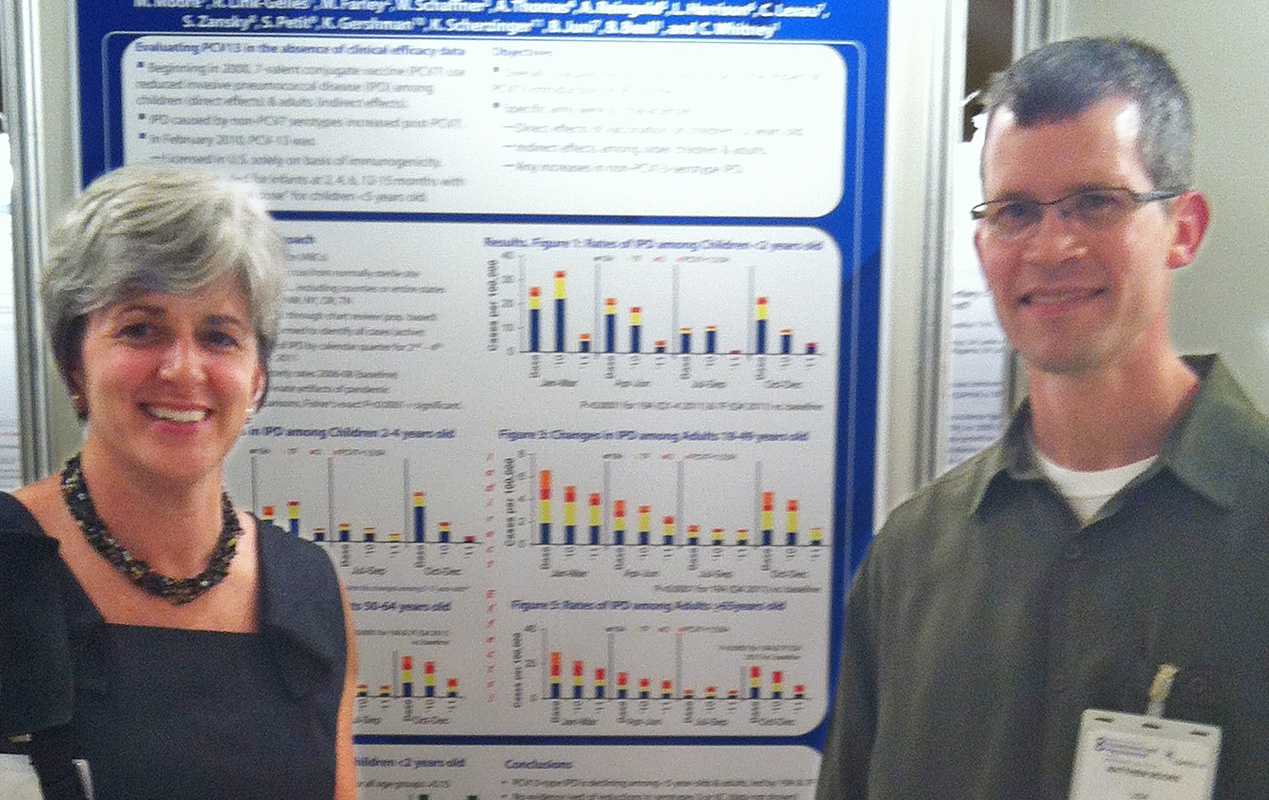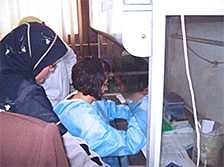Division of Bacterial Diseases (DBD) News Bulletin
This website is archived for historical purposes and is no longer being maintained or updated.
April 16, 2013: Content on this page kept for historical reasons.
In This Issue
- Best Wishes
- Quarter 1
- Quarter 2
- Quarter 3
- Quarter 4
- 2013 Events
Winter 2012
Quarter 1
Amanda Cohn explained the Advisory Committee on Immunization Practices’ (ACIP) fall 2011 recommendation for a booster dose of meningococcal conjugate vaccine for adolescents in the 2012 Medscape video “Clarifying Meningococcal Booster Dose Recommendations.”
Kathleen Dooling discussed pneumonia, preventive steps, and the need to stay up-to-date on vaccinations in her podcast on preventing pneumonia.
DBD 2012 Fast Facts
- 1 Joint Statment
- 2 Twitter Chats
- 3 Health Observances Celebrated
- 4 ACIP Votes
- 4 CDC Connects Articles
- 4 New EISO Officers
- 5 Tuesday Morning Seminars
- 5 Websites
- 6 Podcasts
- 8 Print Materials
- 15 International Lab Trainings
- 55 Human Subjects Actions
- 300+ Documents Cleared by ADS

Leonard Mayer recorded a discussion of invasive meningococcal disease based on a study about invasive meningococcal capsular group Y disease in England and Wales in CDC’s Emerging Infectious Diseases (podcast).

Elizabeth Zell with Claire von Mollendorf from the Centre for Respiratory Diseases and Meningitis (CRDM) in Johannesburg, South Africa, helping Claire learn to use IVEware to multiply impute for missing data. Adjusting for missing information on HIV status is needed for monitoring pneumococcal disease trends through the GERMS surveillance system.
Change in Administration for Anthrax Vaccine
Data from CDC’s Anthrax Vaccine Research Program (AVRP) provided the evidence for FDA approval in May of changes to the label for pre-exposure use of anthrax vaccine adsorbed (AVA, BioThrax). Under the new 3-dose primary series recommendation, AVA will safeguard 66% more personnel in one-third the time with an anticipated 50% reduction in local adverse events, and will require only half the number of doses compared with the original licensed schedule. It will also provide a significant cost reduction per schedule. FDA approval of a 3-dose primary series for AVA (BioThrax) represents the successful culmination of this CDC program. DBD/MVPDB will continue to work with the AVA manufacturer to explore additional reductions in the booster schedule. The Microbial Pathogenesis and Immune Response (MPIR) Laboratory and Brian Plikaytis from the Statistics Office made significant contributions to this research.
Tdap Vote: Streamlining the Adult Recommendation
In February, the Advisory Committee on Immunization Practices (ACIP) voted to recommend that all adults aged 19 years and older who have not yet received a dose of Tdap should receive a single dose. Tdap can be administered regardless of interval since last tetanus or diphtheria-toxoid containing vaccine.

Cynthia Whitney and Matthew Moore attended the 8th International Symposium on Pneumococci and Pneumococcal Diseases (ISPPD) in Iguacu Falls, Brazil, where RDB staff presented 28 oral and poster presentations. Jennifer Verani, Lesley McGee, Laura Conklin and Gloria Carvalho also participated in the bi-annual symposium that raises global awareness and improves standards of diagnosis, prevention and treatment of pneumococcal disease.

In 2012, DBD staff conducted lab trainings and workshops in 15 international locations, including in Australia, Brazil, Burkina Faso, Central African Republic, Cameroun, DR Congo, Gambia, Ghana, Guatemala, Kenya, Vellore, India, Korea, Mongolia, Mozambique and Thailand.
- Page last reviewed: April 16, 2013 (archived document)
- Content source:


 ShareCompartir
ShareCompartir